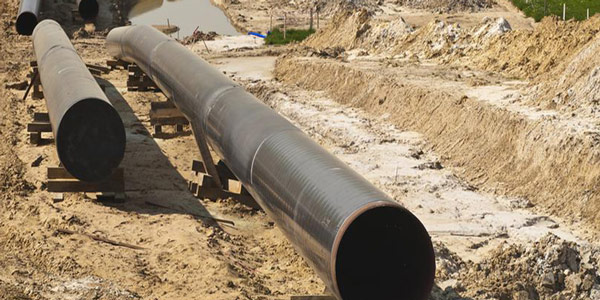By Tom Kleckner
Planners must give more weight to potential pipeline outages in electric reliability reviews, NERC said in a report Tuesday.
“In light of the power sector’s rising reliance on natural gas, the loss of gas facilities must be added to the list of potential extreme contingencies used to measure system reliability impacts,” John Moura, NERC’s director of reliability assessment and system analysis, said in a statement announcing the report.
The report shows the impact of natural gas delivery disruptions will vary depending on the location and density of infrastructure. But the reliability authority says mitigation strategies are available to reduce the potential harm to the electric sector.
The report, “Special Assessment: Potential Bulk Power System Impacts Due to Severe Disruptions on the Natural Gas System,” listed several key mitigation strategies, including transmission upgrades, dual-fuel capability, power imports, adding incremental and diverse generating resources, firm fuel agreements and battery storage.
NERC said the power sector is seeing a drop in the number of dual-fuel units. Developers are foregoing the added expense of dual-fuel capability in many new projects, it said.
It also suggests dual fuel, backup pipeline capacity, and alternative sources of supply should be required in areas with significant risk.
“Dual-fuel capability increases generation reliability and resilience,” the report said, noting dual fuel is currently limited by environmental regulations restricting how long plants can run on oil. NERC called for temporary air permit waivers before any “sustained natural gas infrastructure disruption,” saying waivers should be incorporated into “resilience-planning initiatives when they are required.”
The assessment does not directly take on the Department of Energy’s directive that FERC strengthen the grid’s resiliency by propping up the finances of coal and nuclear plants, but it does point out the growing importance of natural gas as a fuel supply.
“Natural gas resources have become much more diversified,” Tom Coleman, NERC’s director of reliability assessments, said during a media conference call. “Twenty years ago, we were more reliant on Gulf [of Mexico] supplies. We have much more shale gas in some of the market areas that has really changed the dichotomy. Due to this diversity, we don’t have the same risks we had 20 [or] 25 years ago.”
The report offers recommendations to policymakers, the industry and NERC itself. It calls for regulators to consider fuel diversity when they evaluate system plans and establish energy policy objectives. It also recommends expedited licensing of new transmission and natural gas facilities to diversify risk.
NERC suggests registered entities consider the loss of key natural gas infrastructure in their planning studies, and that the gas and electric industries increase coordination and information sharing “to promote reliability and interdependent system integrity.”
“As our power supply becomes increasingly dependent on natural gas, industry must ensure this just-in-time fuel is as reliable and secure as the power plants that need the fuel to operate,” the assessment says.
The organization also recommends adding planning and operating requirements for analyzing disruptions to its reliability standards. To mitigate common causes of failure, it said its Generator Availability Data System (GADS) database should begin collecting additional information on the duration, frequency and causes of natural gas outages.
NERC conducted the assessment by reviewing existing studies, evaluating gas storage facilities and identifying generation clusters — areas with at least 2 GW of gas generation — to determine potential vulnerabilities.
Coleman said the organization studied 24 areas, 18 of which “demonstrated the need for additional follow-up and analysis, based on power flow and stability issues” of the “extreme cases” it ran.
“We wanted to develop a bookend, a worst-case scenario,” he said.
Coleman said natural gas demand has “altered the storage dynamics,” which have historically operated as an inventory hedge by injecting in the summer and withdrawing in the winter.
“With much more electric generation out there, we’re seeing more of an annual injection and withdrawal cycle, versus just a winter and summer dichotomy.”
The report was received coolly by the American Petroleum Institute, which called it “a missed opportunity to properly examine ways to improve the reliability and resilience of North America’s electric grid.”
It said NERC acknowledged “that natural gas supply disruptions are extremely rare events and … that industry is taking steps to prevent such disruptions.”
It cited its joint report with the Natural Gas Council on resilience, which was released in July.






